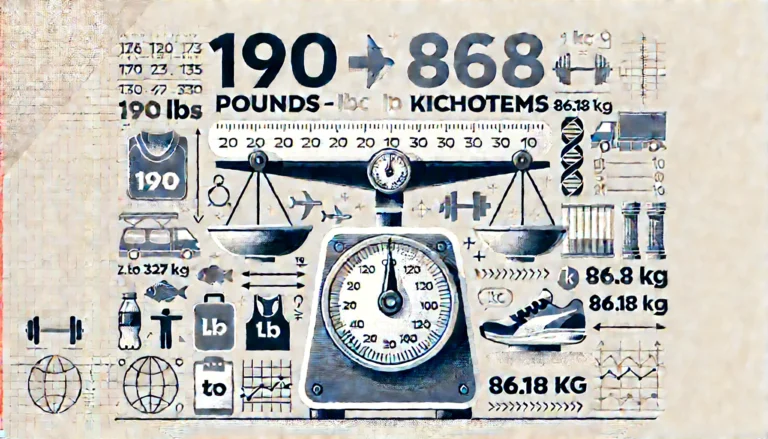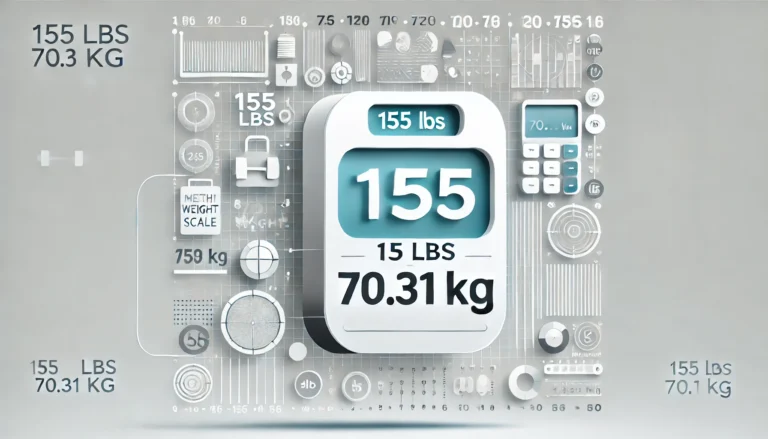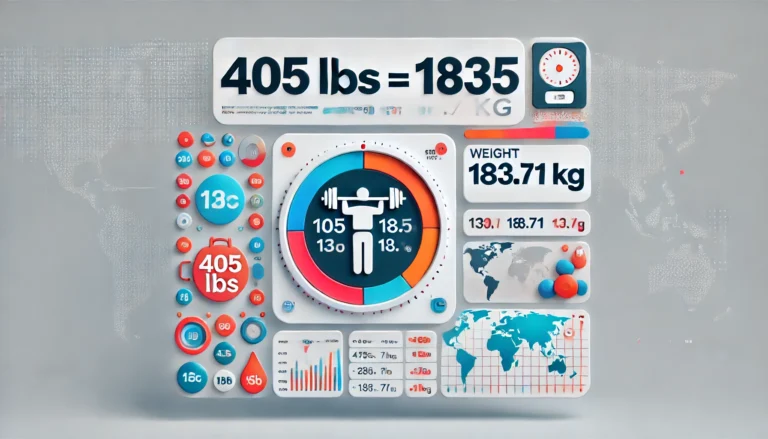
Introduction
Have you ever wondered how much 107 pounds in kg is? Whether you’re tracking your weight, converting units for a workout plan, or just curious, knowing how to convert pounds to kilograms can be helpful. The good news? It’s super simple!
In this blog post, we’ll break down the conversion process, explain why pounds and kilograms are used differently across the world, and answer some common questions. By the end, you’ll be a pro at converting pounds to kilograms in no time!
How to Convert 107 Pounds to KG?
The formula to convert pounds (lbs) to kilograms (kg) is:Kilograms=Pounds×0.453592\text{Kilograms} = \text{Pounds} \times 0.453592Kilograms=Pounds×0.453592
Now, let’s apply this formula to 107 pounds:107×0.453592=48.53 kg107 \times 0.453592 = 48.53 \, \text{kg}107×0.453592=48.53kg
So, 107 pounds is approximately 48.53 kilograms. Simple, right?
Why Do Some Countries Use Pounds and Others Use Kilograms?
If you’ve ever traveled, you might have noticed that weight measurements differ across countries. Here’s why:
- Pounds (lbs) – Mostly used in the United States and a few other countries like the UK for body weight.
- Kilograms (kg) – Used in almost every other country because it’s part of the metric system, which is considered more standardized.
The metric system (which includes kilograms) is used in science, medicine, and sports globally because it’s easier to work with in calculations.
Quick Conversion Table: Pounds to Kilograms
If you often find yourself converting pounds to kilograms, here’s a handy reference table:
| Pounds (lbs) | Kilograms (kg) |
|---|---|
| 100 lbs | 45.36 kg |
| 105 lbs | 47.63 kg |
| 107 lbs | 48.53 kg |
| 110 lbs | 49.90 kg |
| 120 lbs | 54.43 kg |
| 130 lbs | 58.97 kg |
Bookmark this table for future reference!
Why Knowing Weight Conversion is Useful
Understanding weight conversion can be useful in various situations, such as:
- Traveling: Some airlines list baggage weight in kilograms, while others use pounds.
- Fitness & Dieting: Many workout and diet plans use kilograms, while others use pounds.
- Medical Reasons: Doctors and nutritionists often use kg for accuracy in health assessments.
- Shopping: If you buy items in one unit and need to compare prices or amounts, knowing conversions helps!
Fun Fact About Pounds and Kilograms
Did you know that the word “pound” comes from the Latin word “libra”, which is why the abbreviation for pounds is “lbs”? Meanwhile, “kilogram” is derived from the Greek word “khilioi” meaning “thousand,” and “gramma” meaning “a small weight.”
FAQs: Your Questions Answered
1. How many kg is 107 pounds exactly?
107 pounds is exactly 48.534444 kilograms, but for practical use, we round it to 48.53 kg.
2. How do I quickly estimate pounds to kg?
A simple trick: Divide pounds by 2.2. Example:107÷2.2≈48.6 kg107 \div 2.2 \approx 48.6 \, \text{kg}107÷2.2≈48.6kg
It’s not exact, but it’s close enough for a quick estimate!
3. Is 107 pounds considered underweight?
It depends on your height and body type. For example:
- If you’re 5’5″ (165 cm), 107 lbs might be slightly underweight.
- If you’re 5’2″ (157 cm), it’s within the normal range.
Always check with a doctor or use a BMI calculator to determine a healthy weight for you.
4. Why do bodybuilders and athletes prefer kg over pounds?
Kilograms provide more precision for tracking muscle gains and weights. Plus, most international competitions use kilograms.
5. Can I convert kg to pounds easily?
Yes! Multiply kilograms by 2.20462 to get pounds. Example:48.53×2.20462=107 lbs48.53 \times 2.20462 = 107 \, \text{lbs}48.53×2.20462=107lbs
6. Do digital scales show weight in both pounds and kg?
Most modern scales let you switch between lbs and kg. Just check your scale’s manual for instructions.
Conclusion
Now you know that 107 pounds in kg! Converting between these two units is simple when you remember the 0.453592 multiplier or the divide-by-2.2 trick. Whether you’re tracking your weight, following a fitness plan, or just curious, this knowledge will come in handy.
Next time you need a quick conversion, just remember this guide—or save the handy conversion table for reference!




